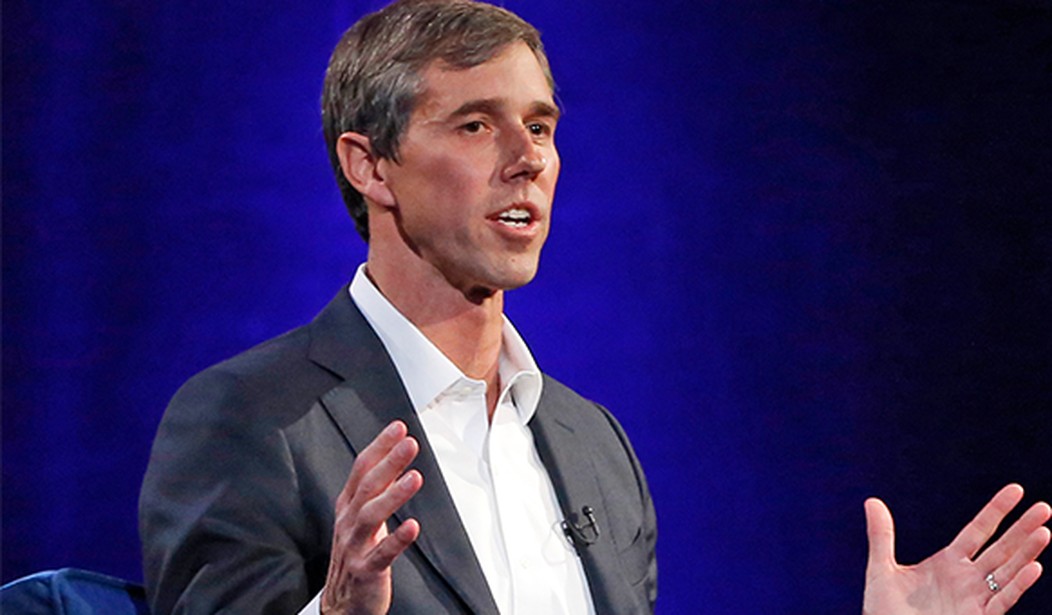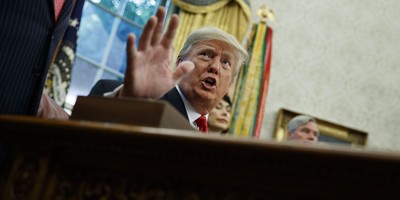2020 presidential candidate Robert Francis “Beto” O'Rourke was asked by a student when he will release his list of donors as well as provide more details about his campaign policies.
O'Rourke attended a meet-and-greet at Penn State University Tuesday, where he called for guaranteed livable wages, preventing college admissions scandals, and other issues. A student asked O’Rourke a two-part question about his campaign.
The first question pertained to the candidate’s fundraiser. In a single day, O'Rourke obtained over $6 million for his presidential race, beating all of his other Democratic rivals. O'Rourke celebrated this victory on Twitter Monday and emphasized that none of the funds came from special interest groups or corporations.
This is a campaign of people. All people, no PACs. All people, no special interests. All people, no corporations. Very grateful to be running this race with you. pic.twitter.com/yZ7x6GV2rX
— Beto O'Rourke (@BetoORourke) March 18, 2019
“You broke all records, which I guess is pretty good,” the student said, getting a chuckle out of the audience. “My concern is how much of that is coming from a process which is called ‘bundling.’”
“Bundling” is when individuals or small groups, which could include lobbyists, business owners or activists, network with other donors to pool their money together for a campaign. Bundling is a legal loophole around contribution limits, where a person can only donate up to $2,700 in one election cycle. These “bundlers” are usually given benefits from their candidates if they win an election, often in the form of political favors.
“Your campaign has not released the number of individual donors you have, nor has it released the average donation,” the student said, and pointed out that a former bundler for Barack Obama, Louis Susman, admitted to gathering donors for O'Rourke’s campaign. The student said that his contributions gave, “a bit of a clue” as to whether or not the candidate was relying on bundlers and asked O'Rourke if he was going to release his donation records.
Recommended
“So the answer to your first question is yes,” O'Rourke answered. “In addition to how much we raised, the fact that we raised it from all 50 states, the fact that we took not a dime from a single PAC or lobbyist, we will release the average and the number of donors.”
The complete focus of this campaign will always be on the people of this country. Never on PACs, corporations, or special interests. pic.twitter.com/jeZegQ3Ui4
— Beto O'Rourke (@BetoORourke) March 19, 2019
The student's second question touched on O'Rourke's policies. “When we look at your website,” the student said. “We don’t really see anything in terms of a solid platform for policies. It’s mostly just platitudes and a merch store.” The student asked if the public, “was going to get an actual policy,” from O'Rourke, “instead of just platitudes and nice stories.”
“To your second question about policy. I’m going to try to be as specific as I can,” O'Rourke said. “I mentioned our criminal justice system. I called for the end of the prohibition on marijuana and the expungement of the arrest records of everyone whose been arrested for marijuana…On the question of healthcare, I talked about universal, guaranteed, high-quality healthcare. You asked about the path to get there.”
The candidate made a shout out to the, “extraordinary women,” in Congress, such as Rep. Jan Schakowsky (D-IL), who introduced “Medicare for America.” The plan would open up Medicare benefits to all children and adults, immediately enroll newborns, and prevent insurance companies from providing plans with more coverage. But unlike “Medicare for All,” the system wouldn’t ban private insurance.
“It costs a lot of money,” O'Rourke admitted. “It will be measured in the trillions of dollars. It’s not inexpensive. As I made the point, and I held the case earlier, it’s a lot less expensive than taking care of people at the end of life who’ve never been treated in the first place.”
O'Rourke finished by saying that during his campaign, he will work to communicate the path he'll take to get to his policy goals, not just explain the goals themselves.
“I understand if we disagree,” he said to the student. “If we come to different conclusions. That’s the genius of our democracy. I appreciate you being here and asking the questions.”

























Join the conversation as a VIP Member